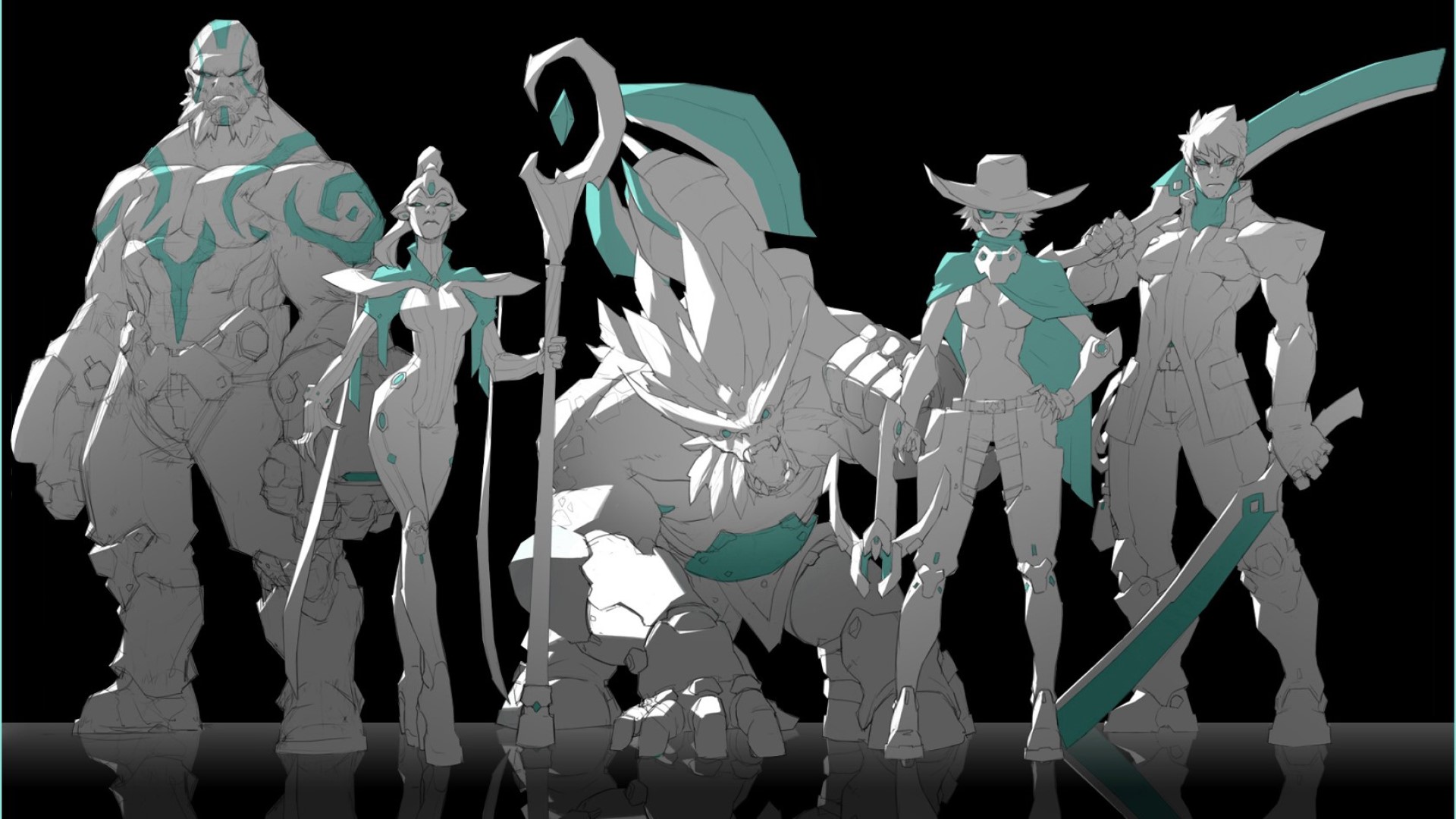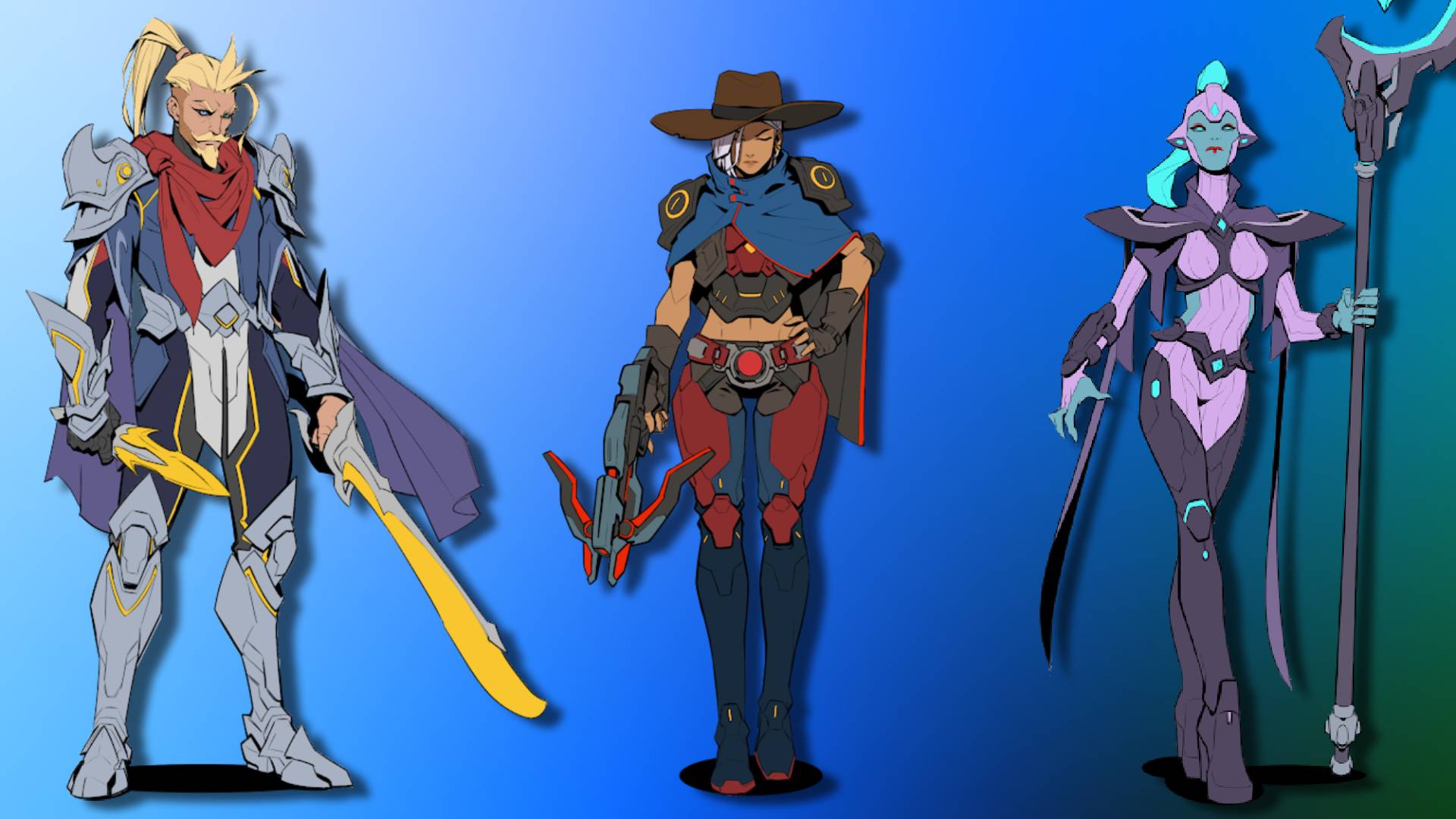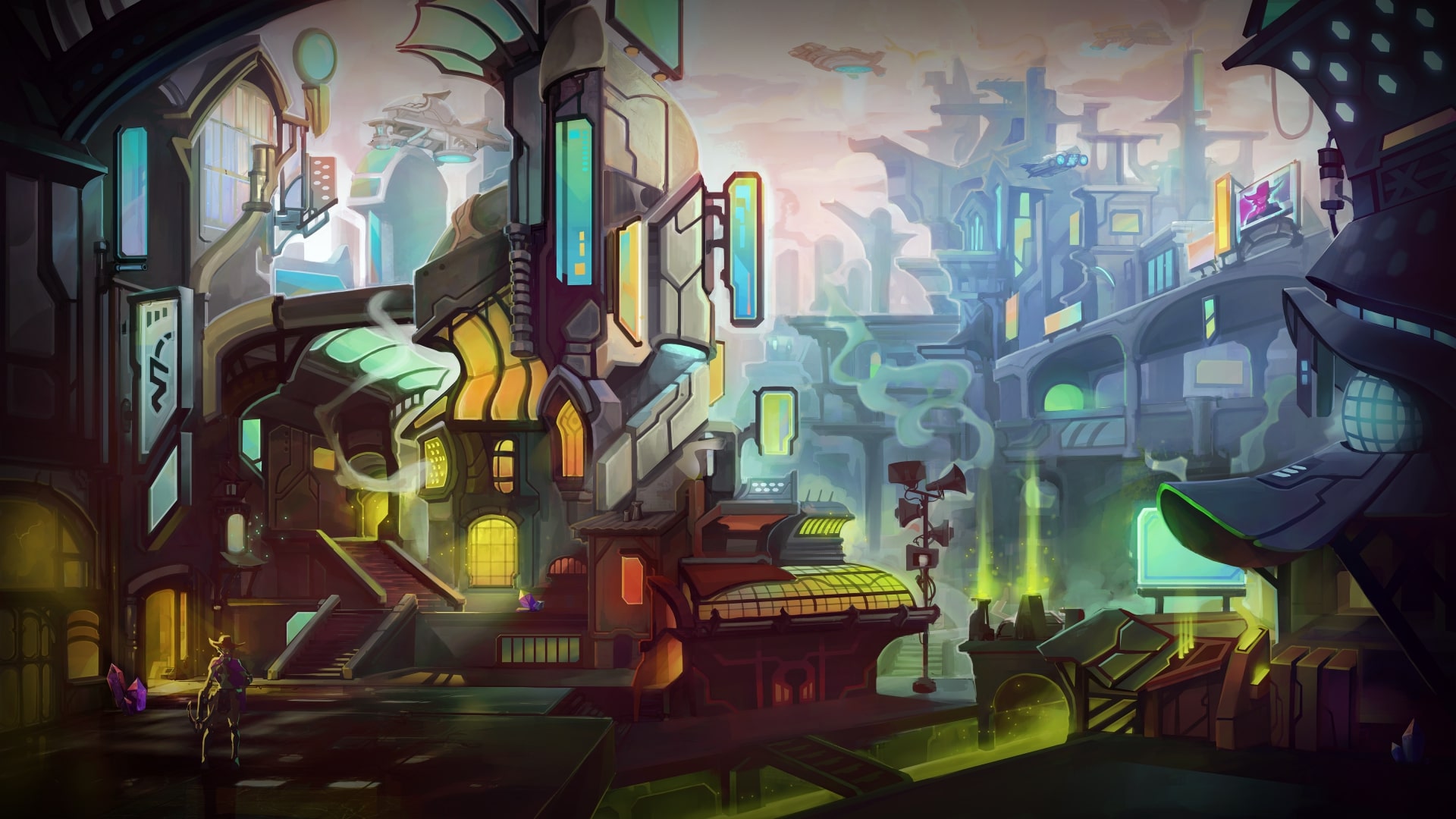Richard Garfield’s new strategy game will generate a unique character for every single player
Everyone is here

As names go, ‘Chaos Agents’ might seem a little vague. However, there’s nothing vague about Popularium Games’ ambitious plans for this distinctive upcoming free-to-play strategy game. This bold hybrid of auto battler and battle royale aims to offer a novel experience, where players master their own uniquely generated characters.
Battle royale titles are known for their mass combats, where only one player can walk away victorious, while auto battlers have players select strategies that their units will then carry out without their direct input. Both genres are titanic features of the video game landscape, but never before have the two met quite like this.
Chaos Agents is the brainchild of four industry luminaries who came together to found Popularium Games back in April. The team includes legendary game designer Richard Garfield, known as the father of Magic: The Gathering, the world’s most popular trading card game, and Skaff Elias, who brings over 30 years of creative experience to the table across video games, tabletop RPGs and Magic itself. Hearthstone veteran Jonathan Bankard and ex-Microsoft business development manager Arka Ray round out the group, with the latter being Popularium’s president and technical director.

TechRadar Gaming sat down with all four of these seasoned figures in an effort to get to the bottom of what to expect from Chaos Agents.
For the team at Popularium, it starts with this idea of ‘uniqueness’. “I can confirm that Richard [Garfield], for about 30 years now, has been interested in this unique deck thing,” said Elias. “When we were first playing Magic, all the decks were unique [...] every deck really did feel different. Magic [then] moved into this space where people were constructing their decks [instead of using random ones]. The uniqueness of what you own gets lost because you’re building towards this sort of internet-optimized build.”
In this way, Chaos Agents is intended to be an answer to metagame-heavy titles like Diablo 4 and Overwatch 2. Garfield was keen to stress that while you have unique characters in Chaos Agents, “it’s not like Diablo, because in Diablo everybody’s got particular character classes, and they can exploit it. Here, your characters will actually be unique, they have their own skills and you will become the world expert in managing your character.”
Royale rumble

This emphasis on unique characters is only one of what Garfield calls the “three principle pillars” of the game. The other two major elements that make up Chaos Agents can be found across the twin foundations of battle royale and auto battler design.
Sign up for breaking news, reviews, opinion, top tech deals, and more.
“The auto battler has fascinated all of us,” said Elias. “The idea that you could get the richness of a computer interaction and all this detailed gameplay, but, as a player, not be bound by twitch and [be] able to participate at all levels of skill - that’s a really appealing thing [...] It’s [also] very good for handling lots of players.” This is where the battle royale element comes in.
During a hands-off preview of a very early build of the game, I was able to see what this meant in practice. Chaos Agents pits a large number of bespoke characters against one another in an isometric arena where players alternate between planning phases and battle phases. In the planning phase, players select strategies and abilities for their character before the AI executes these plans in the battle phase. The phases alternate every 20 seconds in what Garfield calls the “lean forward and lean back loop”.
Chaos Agents pits a large number of bespoke characters against one another in an isometric arena
However, Chaos Agents offers a twist on the traditional auto battler formula, which usually has players face off in self-contained one-on-one engagements. “One of the big innovations for us in the battling phase is that it’s one continuous match,” commented Hearthstone veteran Jonathan Bankard. “It’s not a series of one-v-one battles like you would see in a traditional auto battler.”

According to technical director Arka Ray, Chaos Agents seeks to take advantage of battle royale’s role as “one of the most social and accessible formats”. By having the game’s battles take place between dozens of different combatants, Popularium aims to make players feel comfortable experimenting and failing. “You don’t expect to be number one,” explained Ray, “that immediately relieves a lot of pressure and makes the game more social.”
The addition of the auto battler element is intended to open up this frontier of social interaction and community building. According to Ray, “During that [lean back] time, you’re able to spectate, converse, and actually have banter, which is not necessarily possible when you’re constantly clicking buttons or constantly having to monitor your interactions.”
In Chaos Agents the intention isn’t just for you to be, as Blankard puts it, a “coach” to your AI-controlled character, but also to empower the player to be a spectator. Elias even hinted that these downtime phases might include “minigames around betting” in addition to the usual “taunting and chatting”.
Planting the skill tree

During the demonstration, I was also given a look at exactly how Chaos Agents’ procedurally generated characters will be built. In battle, each character has access to their own unique skill tree which they gradually unlock over the course of a match in the style of a MOBA like DOTA 2. Each individual tree is composed of skills drawn from three of the game’s “colors of mana". As Ray put it, these colors will give you “an approximate idea of what the strengths and weaknesses of that particular character are”.
To maintain the element of uniqueness, character skills are all drawn from decks of potential permutations, which are selected when the character is generated to ensure the creation of a bespoke skill tree. “The layout [of the skills] is also going to be different,” continued Ray, “each character here is going to have a different set.”
To maintain the element of uniqueness, character skills are all drawn from decks of potential permutations
Elias elaborated on what this would mean in practice. In battle, “you can make different choices of which skills to use in any particular instance [...] every one is just going to feel different.” Despite this variation, however, the Chaos Agents team is keen to ensure that every possible character is strong enough to merit playing on its own terms. “[Each] should be a fun, exciting, and complete package in and of itself,” said Blankard.
Like many of Popularium’s aims with Chaos Agents, the goal of having every character boast their own distinct skill tree is as lofty as they come. Even at this early stage, it looks like Chaos Agents is shaping up to be a promising project. Though we don’t yet know if the game will hit the mark, Popularium Games is certainly taking one heck of a shot.
Looking for more brain-teasing titles? Our guide to the best PC strategy games will cover you. Alternatively, if you’re looking for a more physical experience, our list of the best board games will sort you out.

An editor and freelance journalist, Cat Bussell has been writing about video games for more than four years and, frankly, she’s developed a taste for it. As seen on TechRadar, Technopedia, The Gamer, Wargamer, and SUPERJUMP, Cat’s reviews, features, and guides are lovingly curated for your reading pleasure.
A Cambridge graduate, recovering bartender, and Cloud Strife enjoyer, Cat’s foremost mission is to bring you the best coverage she can, whether that’s through helpful guides, even-handed reviews, or thought-provoking features. She’s interviewed indie darlings, triple-A greats, and legendary voice actors, all to help you get closer to the action. When she’s not writing, Cat can be found sticking her neck into a fresh RPG or running yet another Dungeons & Dragons game.